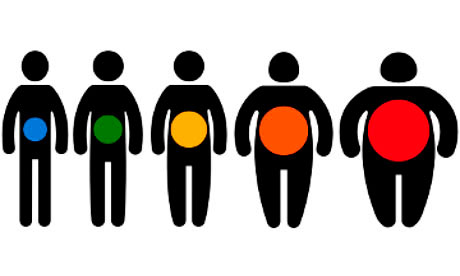Paul Glynn ¦ Senior Staff Writer
It’s easy to think that sexism and misogyny are a one-way street. Of course, this is mostly true to the extent that such discrimination has its most virulent outcome on women – a significant gap in wages, instances of sexual violence, and a less than sympathetic mass-media all testify to this. What doesn’t get addressed quite as much is the extent to which discrimination against women harms men. While it’s fair to assume that men benefit from the current system of ‘Who’s In Power’, the truth is that in the long run, the way society as a whole treats women has a devastating effect on our men, both in its origins and in its outcome.
The traditional definition of what it means to be a man is unapologetically narrow. To be “manly” is to be tough and headstrong (and a bit unkempt for good measure), and to “man up” is to be brave and show no emotion in the face of adversity. We see from Disney films to high-school rom-com-drama concoctions that the most idolised men are usually the muscular, confident, arrogant and womanising decision-makers.
Through language and media, we are given guidelines on how to act in order to be “manly”, and these guidelines have the effect of moulding us into, like I said, a very narrow definition of what it means to be a man. Similarly, we are taught how to treat women, and on the whole, it’s not the most promising snapshot. The situation may not be as bad as it was many centuries ago where the husband-and-wife relationship was built on literal possession, but there is still a sense of dominance that we have to abide by.
Maintaining a sense of “masculinity” is a strong preoccupation for many these days, and it’s not rare to see male characters on comedy films and TV shows show utter repulsion and embarrassment at having to do something that emasculates them, whether it’s Bart Simpson decrying ballet as being “for girls” (and then heroically triumphing in the field), or Ross and Joey making fun of Joey’s purse-like “man-bag” on Friends.
Just as often as women are “told what to do” by the media and societal norms, an unwritten rulebook has been created just for men on how to “be a man”, and many of these rules are the offshoot of a culture of discrimination against women. Gender discrimination in this respect reinforces a sense of negativity and other-ness around women, and also can cause a further dynamic of misunderstanding between the two sides.
Much attention has also been paid to violence against women in video games as of recent. A considerable number of game titles on the market today are grisly shoot-‘em-ups with a male lead, and most female characters end up being non-playable, dressed revealingly and eventually a likely target for violence. The perpetuation of this idea of a weak woman, through a media platform as powerful as video games, harms men in many ways – it desensitises us to violence, and contributes to the brushing off of women’s issues, while also giving men a less than ideal role model.
In 2012, speaker Jeff Perera of the organization Higher Unlearning spoke with a group of nine-year-old boys who shared the things that they “don’t like about being boys”. On the list appeared such statements as “not supposed to cry”, “not allowed to be a cheerleader”, “supposed to do all the work”, and “supposed to like violence”. Obviously, we men are not supposed or forced to do any of these things – but still, why does it feel like there is a certain way that men should be acting in society? Creating a culture where men are supposed to act a certain way – often to the detriment of women – creates, through the example of these boys, a sense of frustration and sadness at losing out on so many opportunities for the sake of maintaining a societal status quo that favours men over women.
In 2014, the list drawn up by the group of boys went viral online, and the bones of a new discussion that was sorely needed started to slowly come together – what does it mean to be a man? Hopefully in the not-too-distant future a new definition will come to the forefront, one that does not perpetuate discrimination against women and a narrow view of the diverse world we live in.







